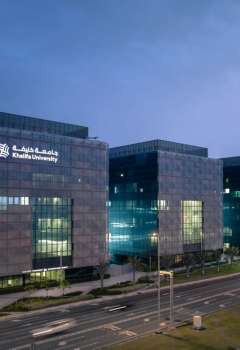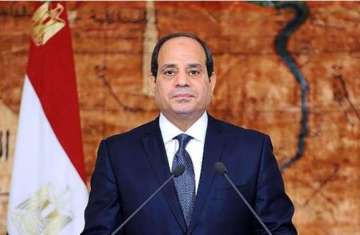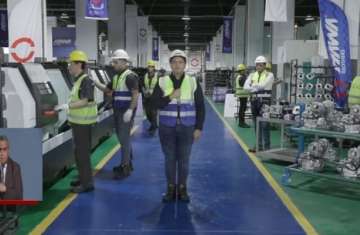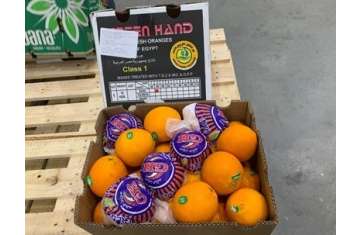عاجل
عاجل| تركيا توقف التعامل التجاري بالكامل مع إسرائيل
 السفير الكويتي: مصر هي الأم الكبرى للعالم العربي.. ودمائنا اختلطت معا
السفير الكويتي: مصر هي الأم الكبرى للعالم العربي.. ودمائنا اختلطت معا
 بايدن عن احتجاجات الطلاب المؤيدة لفلسطين: «يجب عدم إتلاف الممتلكات»
بايدن عن احتجاجات الطلاب المؤيدة لفلسطين: «يجب عدم إتلاف الممتلكات»
 بلينكن يحذر نتنياهو: فرصة التطبيع مع السعودية بدأت تتلاشى
بلينكن يحذر نتنياهو: فرصة التطبيع مع السعودية بدأت تتلاشى
 ارتفاع الدولار أمام الإسترليني.. وبورصة لندن تغلق على ارتفاع
ارتفاع الدولار أمام الإسترليني.. وبورصة لندن تغلق على ارتفاع
 بمناسبة عيدهم.. توجيه جديد من السيسي إلى الحكومة يسعد عمال مصر
بمناسبة عيدهم.. توجيه جديد من السيسي إلى الحكومة يسعد عمال مصر
 السيسي يشهد إنتاج أول محرك مصري
السيسي يشهد إنتاج أول محرك مصري
 بتوجيه من الرئيس.. مساجد الإمارات تقيم صلاة الغائب على روح طحنون بن محمد
بتوجيه من الرئيس.. مساجد الإمارات تقيم صلاة الغائب على روح طحنون بن محمد

 السفير الكويتي: مصر هي الأم الكبرى للعالم العربي.. ودمائنا اختلطت معا
السفير الكويتي: مصر هي الأم الكبرى للعالم العربي.. ودمائنا اختلطت معا
 بايدن عن احتجاجات الطلاب المؤيدة لفلسطين: «يجب عدم إتلاف الممتلكات»
بايدن عن احتجاجات الطلاب المؤيدة لفلسطين: «يجب عدم إتلاف الممتلكات»
 بلينكن يحذر نتنياهو: فرصة التطبيع مع السعودية بدأت تتلاشى
بلينكن يحذر نتنياهو: فرصة التطبيع مع السعودية بدأت تتلاشى
 ارتفاع الدولار أمام الإسترليني.. وبورصة لندن تغلق على ارتفاع
ارتفاع الدولار أمام الإسترليني.. وبورصة لندن تغلق على ارتفاع
 بمناسبة عيدهم.. توجيه جديد من السيسي إلى الحكومة يسعد عمال مصر
بمناسبة عيدهم.. توجيه جديد من السيسي إلى الحكومة يسعد عمال مصر
 السيسي يشهد إنتاج أول محرك مصري
السيسي يشهد إنتاج أول محرك مصري
 بتوجيه من الرئيس.. مساجد الإمارات تقيم صلاة الغائب على روح طحنون بن محمد
بتوجيه من الرئيس.. مساجد الإمارات تقيم صلاة الغائب على روح طحنون بن محمد











التعليقات